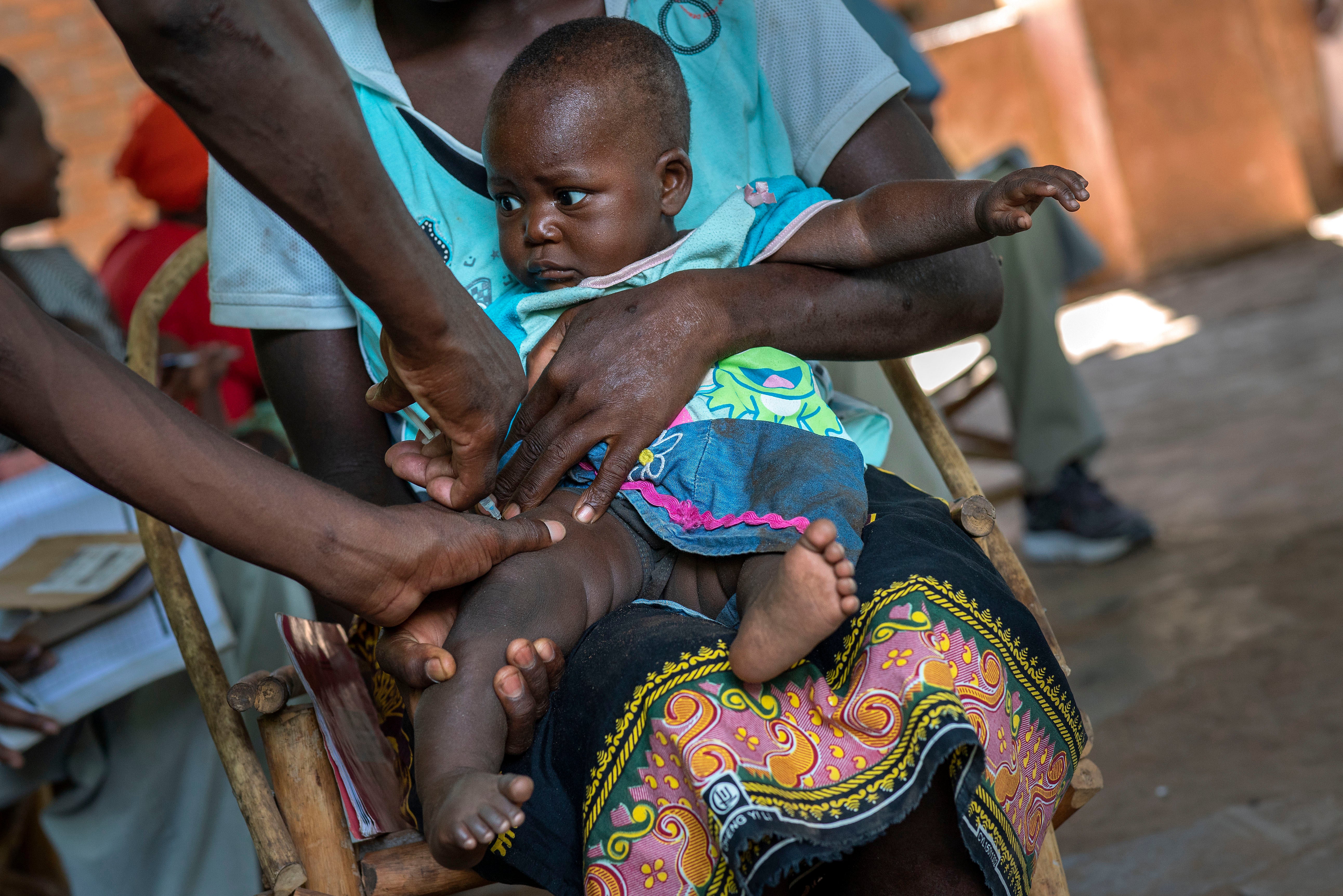600,000 die every year from the disease, mostly children in Africa
Alastair Jamieson

Professor Adrian Hill said the malaria vaccine approval by Ghana was the culmination of 30 years of work
(PA)
A new malaria vaccine developed at the University of Oxford that could protect millions of children has been approved for use for the first time, by Ghana.
The mosquito-borne disease kills more than 600,000 people each year, mostly in Africa, and scientists have been trying for years to develop vaccines.
Childhood vaccines in developing nations are typically paid for by international organisations such as Unicef, after they have been backed by the World Health Organisation (WHO), which is still assessing Oxford’s R21 Matrix-M jab.
However, the university said Ghana has approved it for the age group at highest risk of death from malaria – children aged 5 months to 36 months. It has a deal with Serum Institute of India to produce up to 200 million doses annually.
Adrian Hill, director of the University of Oxford’s Jenner Institute at the Nuffield Department of Medicine, said: “Particularly since Covid, African regulators have been taking a much more proactive stance, they’ve been saying...we don’t want to be last in the queue.”
The R21 vaccine approval “marks a culmination of 30 years of malaria vaccine research at Oxford,” he added. “As with the Oxford-AstraZeneca Covid-19 vaccine, our partnership with the Serum Institute of India has been key to successful very large-scale manufacturing and rapid development.”

A baby is given another malaria vaccine in Malawi in 2019
(AP)
Adar Poonawalla, chief executive of the Serum Institute of India, said the Ghana approval was a “significant milestone” in the fight against malaria.
‘Malaria is a life-threatening disease that disproportionately affects the most vulnerable populations in our society and remains a leading cause of death in childhood,” he said. “Developing a vaccine to greatly impact this huge disease burden has been extraordinarily difficult. We remain steadfast in our commitment to scaling up production of the vaccine to meet the needs of countries with high malaria burden and to support global efforts towards saving lives.”
The first malaria vaccine, Mosquirix from British drugmaker GSK, was endorsed by the WHO last year after decades of work. But a lack of funding and commercial potential thwarted the company’s capacity to produce as many doses as needed.
GSK has committed to produce up to 15 million doses of Mosquirix every year through 2028, well under the roughly 100 million doses a year of the four-dose vaccine the WHO says is needed long-term to cover around 25 million children.
Ghana, Kenya and Malawi were all involved in the pilot programme for the roll-out of Mosquirix, and have begun rolling it out more widely in recent months.
Since it began in 2019, 1.2 million children across the three countries have received at least one dose of the vaccine, and the WHO said last month that in the areas where the vaccine has been given, all-cause child mortality has dropped by 10%, a sign of its impact.
Mid-stage data from the Oxford vaccine trial involving more than 400 young children was published in a medical journal in September.
Vaccine effectiveness was 80% in the group that received a higher dose of the immune-boosting adjuvant component of the vaccine, and 70% in the lower-dose adjuvant group, at 12 months following the fourth dose.
The doses were administered ahead of peak malaria season in Burkina Faso.
Data from an ongoing phase III clinical trial in Burkina Faso, Kenya, Mali and Tanzania that has enrolled 4,800 children is expected to be published in a medical journal in the coming months.
Reuters contributed to this report
No comments:
Post a Comment